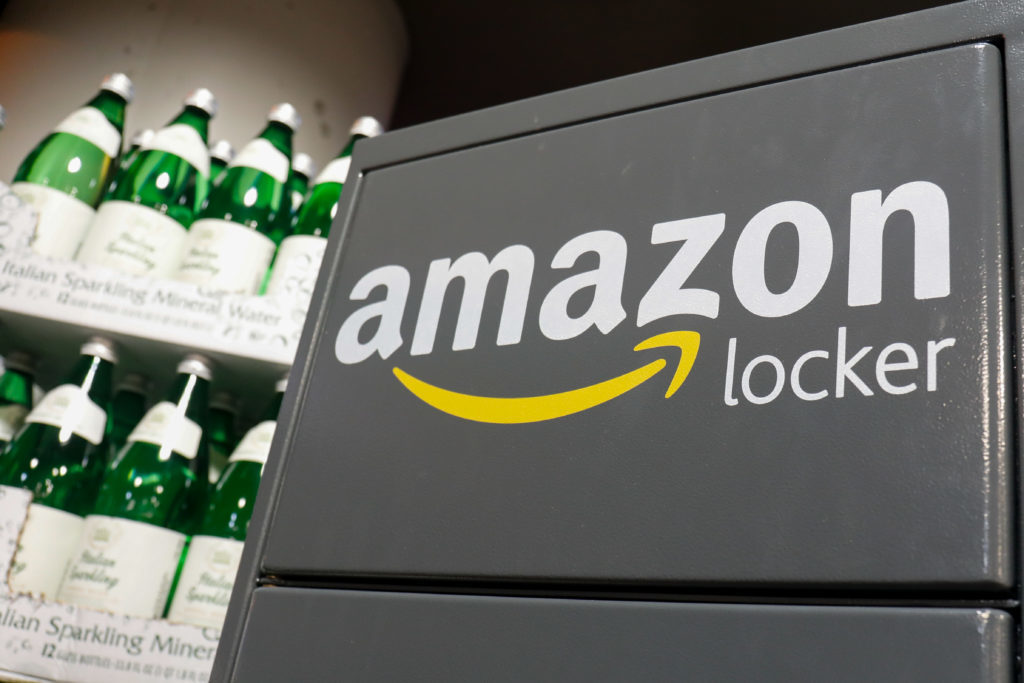As Amazon looks to cities across North America for a location to build its second headquarters, GW and other D.C. universities could pull the tech giant toward the District.
Experts said higher education could prove a critical factor in Amazon’s decision about where to build its next headquarters. The vibrant, innovative culture that stems from college campuses appeals to the company as it seeks to hire thousands more highly skilled workers in the coming years. That would mean D.C. universities – especially GW – could be a boon to the city’s bid to lure the online retail powerhouse, experts said.
In September, Amazon announced plans to build a second headquarters in North America to complement its current campus in Seattle. In the announcement, Amazon requested proposals from cities hoping to house the new headquarters, igniting a fierce competition between major cities to attract the company.
The company laid out a series of criteria for cities hoping to bid, including a population of more than one million people, a business-friendly environment and the ability to attract technical talent.
Amazon officials said its second headquarters will create 50,000 jobs within a decade at an average salary of $100,000, according to the company’s request for proposals.
Earlier this month, The Wall Street Journal named D.C. a top competitor to win the project, putting the District in a tie with Atlanta for third place. The newspaper used a city’s college population as one of its major criteria – along with aspects like a strong tech labor force and fiscal standing – to determine the top contenders.
D.C. Mayor Muriel Bowser announced the District’s proposal in a video in September, touting various accolades and advantages to locating in D.C. like Forbes’ rating of D.C. as one of the “Coolest Cities in America,” and the high proportion of D.C. residents who are college students. The mayor’s office also created a website surrounding the proposal, using the slogan, “Alexa, Why D.C.?” in a nod to Amazon’s virtual assistant product.
Chanda Washington, a spokeswoman for the Deputy Mayor for Planning & Economic Development, said city officials are focusing on the strength of D.C.’s business environment and the academic strength of the region in its argument to Amazon.
“D.C. is a world-class city, with top-tier talent and a business-friendly environment,” she said. “We have a growing tech hub with room for an anchor, we have access to the third-highest concentration of educational institutions and we have the most educated workforce in America.”
Scott Latham, the vice provost for innovation and workforce development at University of Massachusetts Lowell, said GW is well-equipped to attract Amazon as the company looks to expand overseas.
“One of their next big strategic priorities is international growth and that is the type of thing that students from GW will play a big, critical role in,” he said.
He said the impact of higher education could be the “number one reason” why Amazon picks a certain city.
GW has made expanding its global footprint a key part of its strategic plan and officials have pushed to recruit more international students in recent years.
Officials at Amazon’s current headquarters work closely with area colleges. Most notably is the University of Washington where Amazon has endowed several professorships and is one of the largest employers of students post-graduation, according to The Chronicle of Higher Education.
Ed Lazowska, the chair of computer science and engineering at the University of Washington, said there is a large potential for cooperation between Amazon and its new inner-city neighbors in higher education.
“In terms of who benefits – in our experience it’s entirely symbiotic. Amazon hires a lot of our students,” Lazowska said. “At the same time, we have collaborative research, and Amazon has been generous philanthropically.”
The goal of hiring 50,000 employees within 10 to 15 years provides a strong incentive for Amazon to locate its second headquarters near universities like GW, Lazowski said.
Michael Olivas, the director of the Institute for Higher Education Law & Governance at the University of Houston, said Amazon’s need to hire skilled workers will make cities with strong higher education options appealing to the company.
“To attract the work force Amazon needs, a highly educated work force, presumes college access and a quality of life found in and around higher education,” he said.
But some experts said the potential impact of universities is overstated.
David Feldman, professor of economics at the College of William & Mary, said the myriad of other factors contributing to Amazon’s decision, most importantly tax incentives that cities may offer, outweigh the effect of higher education. Amazon does not need to be in close proximity to a university to fill its labor needs because it hires in a national labor market, he said.
“If Amazon doesn’t need to be near a university in order to hire well, that means the other incentives that states are offering are likely to prove much more important in predicting Amazon’s location choice than adding up the academic heft of the local universities,” Feldman said.
Leah Brooks, an assistant professor of Public Policy and Public Administration in the Trachtenberg School of Public Policy and Public Affairs, said she was skeptical of the University’s ultimate impact because the number of computer science graduates at GW is small compared to other universities in competing cities.
“I think it’s hard to imagine that they could locate in a place where they wouldn’t have a strong supply of college graduates,” Brooks said. “I’m not convinced that D.C. is really a place like that, but I think from Amazon’s perspective, that would really be one of the things that they would be looking for.”
Dani Grace contributed reporting.





